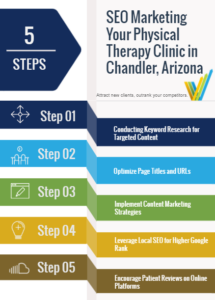Search engine optimization (SEO) is essential for business success. To ensure you’re attracting the right audience, driving traffic to your site, and enticing prospects to convert, you have to pay close attention to the contentand user experience your site provides. Google has recently upped its SEO game by incorporating artificial intelligence(AI) into its algorithms. AI SEO is changing the face of optimization.
What is AI SEO?
Artificial intelligence is essentially teaching machines to predict (on their own) what human users want. AI allows computers to gather data to learn patterns and trends.
Then, they make adjustments to interpret human directives and provide the desired action or response.
As a society, we’re already using this technology in other aspects of our lives. Maybe you’ve asked Alexa to play your favorite song. Or you’ve relied on Siri to provide directions to a restaurant. Both of these are everyday examples of AI. Now, Googlehas applied this same technological concept to SEO.
The more helpful your website is, the higher Google will rank it in its search listings. This gets you more visibility and increases brand awareness, both of which help boost conversion rates. In the past, SEO was all about making sure your website was easily navigable, page load times were brief, andquality contentresonated with target audiences. With AI SEO, theuser experienceis more custom than ever before.
Through machine learning, search engines track user behaviors, searchhabits, locations, devices, and more. This information allows them to gain a better understanding of what users want from their online experience. As a result, AI SEO can develop highly tailored optimization strategies. This is critical because consumers are putting more emphasis on page one search results. In fact,75% of peopledon’t look past the first page of Google’s listings.
To set yourself apart from the competition and gain more visibility, you have to earn higher SERPs. AI SEO can get you there.
How AI is Specifically Used for SEO
There are numerous ways in which Google uses AI in its SEO algorithms. Some of these applications include:
Voice search: More than4.2 billionpeople use voice search globally. When a user asks a question into a device, results are typically read back as a rich snippet. AI is scanning web content and predicting which answer is most relevant to the question being asked. This shows just how important content is in yourmarketingstrategyand how AI affects your content development.
Topic identification:AI can hone in on search traffic volume to help identify potential topics for content development. Discussion trends, keyword clusters, and gaps among your competition all present opportunities for you to create highly targeted killer content that converts.
Content optimization:Not only can AI help identify what to write about, but it can also help optimize what you’re writing. AI can identify existing content on your site that could improve for better results. Rewording phrases to better fit search terms and refreshing old links can be a tremendous asset when trying to earn higher SERPs.
Local search results:58% of peopleusing voice search are seeking nearby businesses. That means they’re ready to purchase and are on the hunt for the item that solves their problems. Your online business information (address, hours, phone number, hours of operation) must be current to capture local searchers. AI can identify areas on the web where these details are posted and ensure they’re up to date.
Creating pillar pages: Pillar content is high-quality long-form content that supports various subtopic articles. It confirms your position as a thought leader and provides effective material for search engines to scan for higher SERPs. AI gains an understanding of what topics search engines categorize your material. Then it suggests ways to create pillar pages that attract search traffic.
For marketers to excel inSEO strategydevelopment and surpass the competition, they must embrace AI SEO and maximize the opportunities provided by Google’s new algorithms.
Ways to Capitalize on AI SEO
The main goal for website SEO is to drive traffic and generate revenue. While there are several ways to achieve this, AI SEO can help your site outrank the competition. Understanding Google’s algorithms can help you capitalize on the benefits of AI SEO and bring ultimate success. Take advantage of AI SEO by:
Pinpointing a particular niche: AI shows us that niche sites deliver more relevant content than those with a more general voice. The ability of machine learning to detect keywords and identify an ideal audience can help you pinpoint a particular niche for your site. Honing in on a specific topic that targets a specific group of people ensures people will find your information more useful and earn you higher search engine rankings.
Knowing where to insert keywords: We already know that AI helps to determine keyword trends. It can also recommend the best placement for those keywords for premium optimization.Keywords should appear in the body text and page titles, headings, ALT tags, and meta descriptions.
Building an effective permalink: Your site’s permalink, or URL, is another important place to incorporate keywords. AI reveals that the ideal permalink also avoids underscores and is relatively brief. (It maxes out at 2,083 characters, but the shorter, the better.) Using the right permalink structure enables search engines to crawl your page for SERPs effectively.
Keeping an eye on website performance: Google’s algorithms make data easy to track.Google offers a Webmaster tool that enables you to keep a close eye on your site’s performance. You can find room for improvement with HTML, see whether your sitemaps are effective, and identify any crawl errors.
AI SEO is extremely useful in helping you build a website that’s optimized for user experience and earns higher search engine rankings. Knowing how to capitalize on its benefits can help you create a site that converts.
4 Ways AI is Changing the Future of SEO
Google’s algorithms help the search engine process data and applications and make decisions based on user behavior, patterns, and trends. Machine learning is changing the future of SEO. Here are four changes we’ll continue to see with the widespread use of AI SEO.
1. Optimized Visual Content
Thanks to AI SEO, search engines can now differentiate between image, audio, and video content. Video is among themost preferred contentonline. It’s engaging, informative, and helps a brand tell a story and increase awareness. Since AI can analyze this kind of visual content, developers can optimize video content for better SERPs.
When marketers include valuable keywords in video descriptions and headings, AI can help the video reach the right target audiences. This optimization enables companies to provide relevant information to specific people and delivers a better user experience. All of this helps increase search ranking placement.
2. Mobile Search Optimization
Last year,211 million Americansconducted searches on mobile devices. Since many of these are voice searches, AI SEO is critical in helping marketers make their website and content user-friendly. With Google’s mobile algorithms, marketers are incorporating voice search into their website strategy.
SEO-driven copywriters will write more content in conversational phrasing so that voice searches on mobile devices can find the most relevant matches. We’ll see more casual keyword applications with AI SEO to align with how people enter their queries in search engines.
3. Search Intent
Understanding users’ search intent provides a significant advantage. It helps set yourself apart from the competition, strengthens your position, and boosts click-through rates. Google’s AI SEO works to understand a user’s search intent, guiding content creation to ensure the material provides the correct answers to the questions searchers ask.
Without AI, marketers have to guess at user search intent. If someone types “women’s coat” into a search engine, do they want to know where to buy one? How much does it cost? A photo of an example? Search engines could only guess at an interpretation. With AI SEO, search results are much closer to the specific answer users are seeking.
4. Virtual Reality Applications
Let’s face it. Today’s consumers want to try before they buy. This can be difficult for e-commerce shoppers, but AI makes it possible. More industries are incorporating virtual reality applications into their user interactions. From superimposing paint colors on bedroom walls to placing furniture in a living room, users can see firsthand what products are like before committing to a purchase.
With AI SEO, marketers can deliver the experience users want, no matter the industry. We’ll see more virtual reality applications as AI continues to develop. Marketers who can incorporate these applications into their website optimization are likely to be rewarded with higher search listing placements.
Rely on an SEO Expert
Google’s algorithms are constantly changing; so is AI development. Understanding how the two work together to boost SEO is critical to your business’s success. Visual Rankingsprovides expert digital marketing and SEO consulting to help you create an effective strategy that capitalizes on AI SEO. SEO optimization is key if you’re looking to deliver a superior user experience, drive traffic, and generate sales.
For a free SEO audit,contact ustoday.






